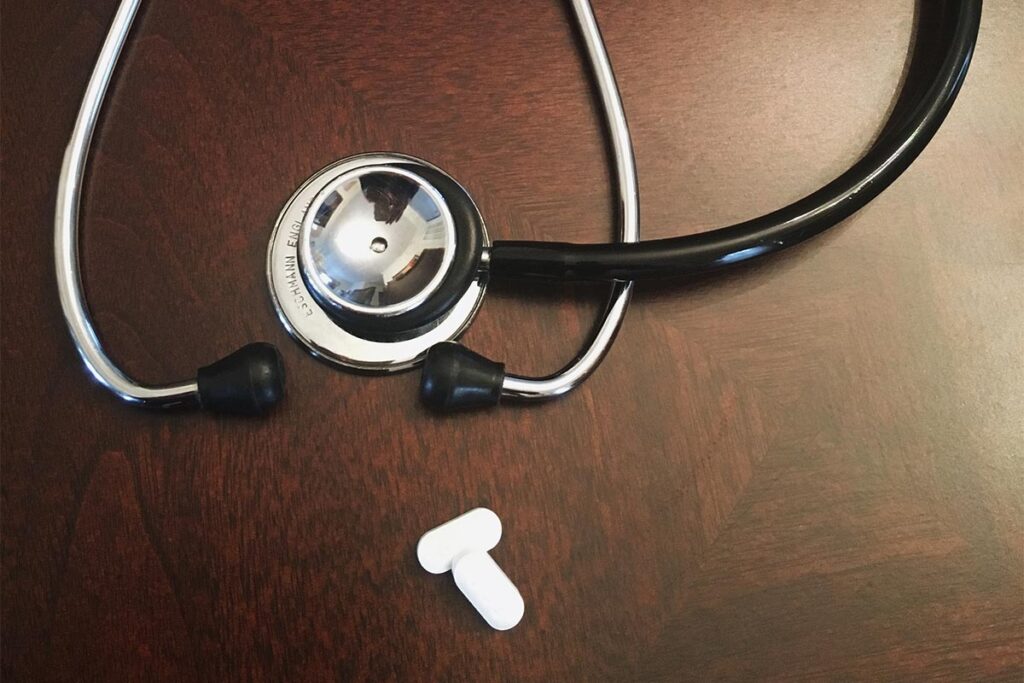If you or a loved one is struggling with a substance use disorder, you very likely need a detox period before you can move into rehabilitation and behavioral treatment. Detox refers to medically assisted or managed (monitored) withdrawal from drugs or alcohol. And, often that’s necessary to ensure you don’t suffer from dangerous complications. Depending on what you’re using and what you have to recover from, detox can be there to ensure you can move through withdrawal safely, to ensure you stay comfortable, and to ensure you can make it through withdrawal at all. In either case, you can typically expect the detox process to take an average of 14 days. On the other hand, the actual timeline will heavily depend on what you’re using, how long you’ve been using, and what kind of detox you choose. We’ll go over that and more in the following article.
What Types of Detox are Available?
Most rehab centers will offer one primary detox option. However, some will offer a range of options, allowing you to choose something that works for your needs and timeline. Detox primarily requires managing and monitoring the symptoms and side-effects of withdrawal to get you through to recovery safely. Here, most rehab centers will offer:
- Social Detox – Social detox is the most common detox program available. In most cases, it means you get medical monitoring in a group of peers. You have people checking up on you, watching symptoms, and intervening in case things get worse. However, for the most part, you are withdrawing on your own. This is the option that many people choose when they decide they want to be as drug free as possible. However, it can be difficult and lengthy. For some drugs, withdrawal periods can last for months. Side-effects and symptoms can also be quite severe and may require medical intervention anyway. However, for some drugs, there’s no real choice other than social detox.
- Medical Detox – Medication assisted detox means using a prescription drug to treat the symptoms of detox or to prevent them altogether. For example, it may mean using medications like barbiturates and benzodiazepines to reduce symptoms of muscle spasms, tremors, and seizures. It may also mean using drugs that interact with the brain and body in the same way, so you never get the withdrawal symptoms. For example, buprenorphine for opioids and acamprosate for alcohol. These will dramatically change the detox process and may mean that you have no real detox period. Pharmacological strategies for detox also often include medication to ensure that you cannot relapse – which can also help you to stay in recovery.
- Rapid Detox – Rapid detox means that you use a medication to accelerate the withdrawal period, meaning you move through it more quickly. Many rehab centers do not offer this, as it can pose extra health risks.
Essentially, the duration of detox will heavily depend on what kind of detox you choose.
How Long Does Detox Last?

If you’re going for social detox, you can expect about the following detox timers. However, these will vary depending on you, your age, your metabolism, and health. In addition, if you use a medication assisted program, you’ll see vastly different timelines.
- Alcohol – Alcohol withdrawal symptoms typically last about 1-2 weeks. However, for some, symptoms can last 6-12 weeks. Complications can also be quite severe, which means that you should not detox without medical monitoring.
- Benzodiazepines – Benzodiazepines like Xanax and Valium typically have a very long withdrawal period and you may be required to taper off of them rather than cutting all at once. In most cases, symptoms last about a week to a week and a half, with a peak after 4-5 days. However, symptoms can be quite severe and you will have to taper or receive medication to manage symptoms.
- Opioids – Opioids like prescription pain pills, heroin, fentanyl, etc., all have a similar withdrawal period of about a week. However, significant cases can last for up to two weeks. Long-acting opioids and slow-release painkillers can last up to 3-4 weeks.
- Stimulants – Stimulant withdrawal typically lasts 2-3 days after the final dose. Symptoms are typically mild but can be quite severe for some like amphetamines. For example, amphetamine withdrawal may involve several days of crashing and sleeping.
Otherwise, the duration of your detox will depend on how long you’ve been using, what you’re using, and factors like age and weight.
Get Your Questions Answered Now
What’s the Detox Process?

Drug detox means checking into a clinic and getting medical support while you withdraw. That typically tarts with intake, tailoring a program to your needs, and moving you through the process. Often, the steps are as follows:
- Intake including a physical and mental health assessment
- Check-in and moving into the clinic
- Any prescription medication you’re getting is prescribed and dosed
- You’ll start attending counseling and therapy to help you through the withdrawal process
- You’ll get ongoing medical monitoring, including regular checkups on vitals, mental health, and progress
- You’ll take part in group classes and activities to ensure you can stay busy and with your mind as much off the withdrawal as possible
- You’ll start to learn about addiction and recovery
- Your program, prescription, and medical care will be updated as you move through detox
In most cases, you leave detox when you show signs of being well enough to join regular treatment and care. That can be anywhere from a few days to a few weeks. In addition, if you’re receiving medication, you might actually go straight into treatment and skip a separate detox phase.
What are the Symptoms of Alcohol and Drug Detox?
Unless you’re prescribed medication to mitigate or prevent withdrawal symptoms, you will have to deal with those symptoms during withdrawal. However, withdrawal symptoms change depending on what you’re using and how much. However, most people going through withdrawal will experience:
- Anxiety
- Panic and panic attacks
- Depression
- Sleep disturbances (nightmares, insomnia, restless sleep, difficulty falling asleep)
- Tremors and shaking
- Risk of seizures
- Concentration and memory problems
- Memory problems
- Fatigue
- Sweating
- Cold and flu symptoms
- Heart problems (palpitations, arrythmia)
- Muscle pain
- Nausea, diarrhea, vomiting
Here, it’s important that you receive monitoring to ensure you don’t dehydrate, to keep your mental health up, and to prevent dangerous complications. For example, 10-30% of persons withdrawing from alcohol are at risk of delirium tremens, a potentially fatal complication of alcohol withdrawal.
Withdrawing without detox can also result in significant risks to your health. Therefore, it’s always important to look for medical assistance and monitoring, even if you want to try to avoid medication to reduce those symptoms.
Getting Help

If you’re struggling with substance use, you may need detox. That’s especially true if you’re using alcohol, an opioid of any kind (heroin, pain pills, fentanyl, speed), amphetamines, and benzodiazepines. These drugs run the risk of dangerous side-effects and complications. However, you may want and benefit from detox even if you have a low-risk withdrawal period. Here, you’ll typically receive early therapy, education, emotional and psychological support, and introduction to your peers so that you can get perspective and insight into your recovery.
Eventually, if you need detox, you’ll also need addiction treatment. That will mean moving into a counseling and therapy program, typically attached to the detox program. Here, you’ll learn behavioral interventions for substance abuse, will get help uncovering and treating the underlying causes behind substance abuse, and will learn skills to improve your life and how you manage it.
If you or a loved one is seeking help for substance abuse or alcoholism, contact us at Stairway Resource Center now. Stairway Resource Center features a 60 to 90-day outpatient program that takes place in an engaging and supportive community setting. We also offer dual diagnosis treatment and daily group and individual therapy for our clients, in addition to fun community-based events and activities that assist in achieving long-term sobriety.

